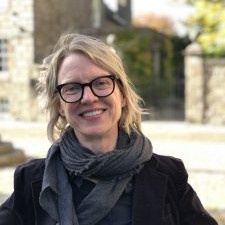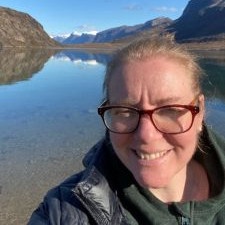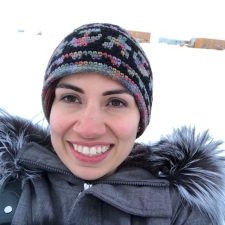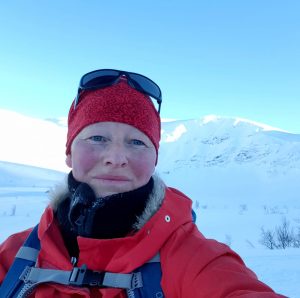The Inuksiutit research team consists of Inuit scholars and community leaders, anthropologists, an art historian, nutritionists, archivists, and importantly aspiring young Inuit filmmakers and food sovereignty advocates. The research is Inuit-led and community-led with funding from UKRI and POLAR Canada as part of the unique CINUK funding scheme that includes a full partnership with Inuit Tapiriit Kanatami.
Principal investigators
- Dr Nancy Wachowich (University of Aberdeen, UK)
-

- Dr Anna Hudson (York University, Canada)
-

Co-investigators
- Rhoda Katsak
-

- Amy Caughey
-

- Laakuluk Williamson-Bathory
-

- Jessica Penney
-

Postdoctoral researcher
- Dr Jan Peter Loovers (University of Aberdeen, UK)
-

Collaborative team
- Jean Allen
-

- Damian Enoogoo
-

- Martha Jaw
-

- Neevee Jaw
-

- Dana Katsak
-

- Sheila Katsak
-

Sheila Katsak lives in the community of Mittimatalik where she currently works as a mother, grandmother, daughter, sister, wife, aunt, neighbour, craftsperson and cultural advocate.
In 2015 Sheila co-founded, with Nancy Wachowich, the Mittimatalik Arnait Miqsuqtuit Collective (MAMC) (translation: Pond Inlet Women's Sewing Collective) which set out to create a community-based digital archive of sealskin sewing skills and to celebrate and reinvigorate the artistry and language of sealskin sewing in her community. Sheila's sewing-related cultural advocacy work can be seen on the MAMC website https://arnaitmiqsuqtuit.wixsite.com/mamc and vimeo channel https://vimeo.com/mamc Her collaborative video curations —Anaanavut Qisingit: a meditation on sealskin sewing (2018), Irnivik: Airing Frame (2018), Uiguaqtuq: The Hidden Stitch(2017) Kattiqsuqsimajut: Collection (2015)- were also exhibited the Qiqiktani General Hospital (2018-2019) exhibition spaces, the Art Gallery of Ontario, and the Guovdageaidnu/Kautokeino, Sámi University of Applied Sciences Finnmark, Northern Norway (2018). Her collaborative work (with Amber Lincoln) Inuit Women's Sealskin Sewing: a film for the British museum exhibition was exhibited the British Museum's 'Arctic: Culture and Climate' exhibition (2020).
Sheila is also author of three book chapters:
Anaanavut Ilisaijigiqaaqtavut Iliniarutigijavut Qisiliritigluttat: Our Mothers, Our First Teachers: Lessons from Sealskin Sewing' (with Nancy Wachowich). In Qummut Qukiria!: Art, Culture, and Sovereignty Across Inuit Nunaat and Sápmi: Mobilizing the Circumpolar North. Hudson, A., Igloliorte, H., Lundström, J. (eds.). Goose Lane, pp. 395, 407 pages
Working with nalua: the most delicate of sealskins (with Nancy Wachowich) In: Arctic: Culture and Climate. Lincoln, A., Cooper, J., Loovers, J. P. L. (eds.). Thames & Hudson, in collaboration with The British Museum, pp. 142-148, 7 pages. 2020
Making my Amautis. In: Arctic: Culture and Climate. Lincoln, A., Cooper, J., Loovers, J. P. L. (eds.). Thames & Hudson, in collaboration with The British Museum, pp. 142-148, 7 pages. 2020. *This chapter was chosen as the British Museum Object in Focus blog https://www.britishmuseum.org/blog/object-focus-arctic-amautis-mothers-parkas
Sheila's key research partner on the Inuksiutit project is her sixth child, baby Samantha Katsak, who joins the IFSNu team alongside her mother as one of the Food Sovereignty Toolkit advocacy leads in Mittimatalik. Samantha Katsak is the youngest of the Inuksiutit team and has a special research interest in Inuit food systems and community outreach activities.
- Theresa Koonoo
-
content coming soon...
- Gabriela Wagner
-

